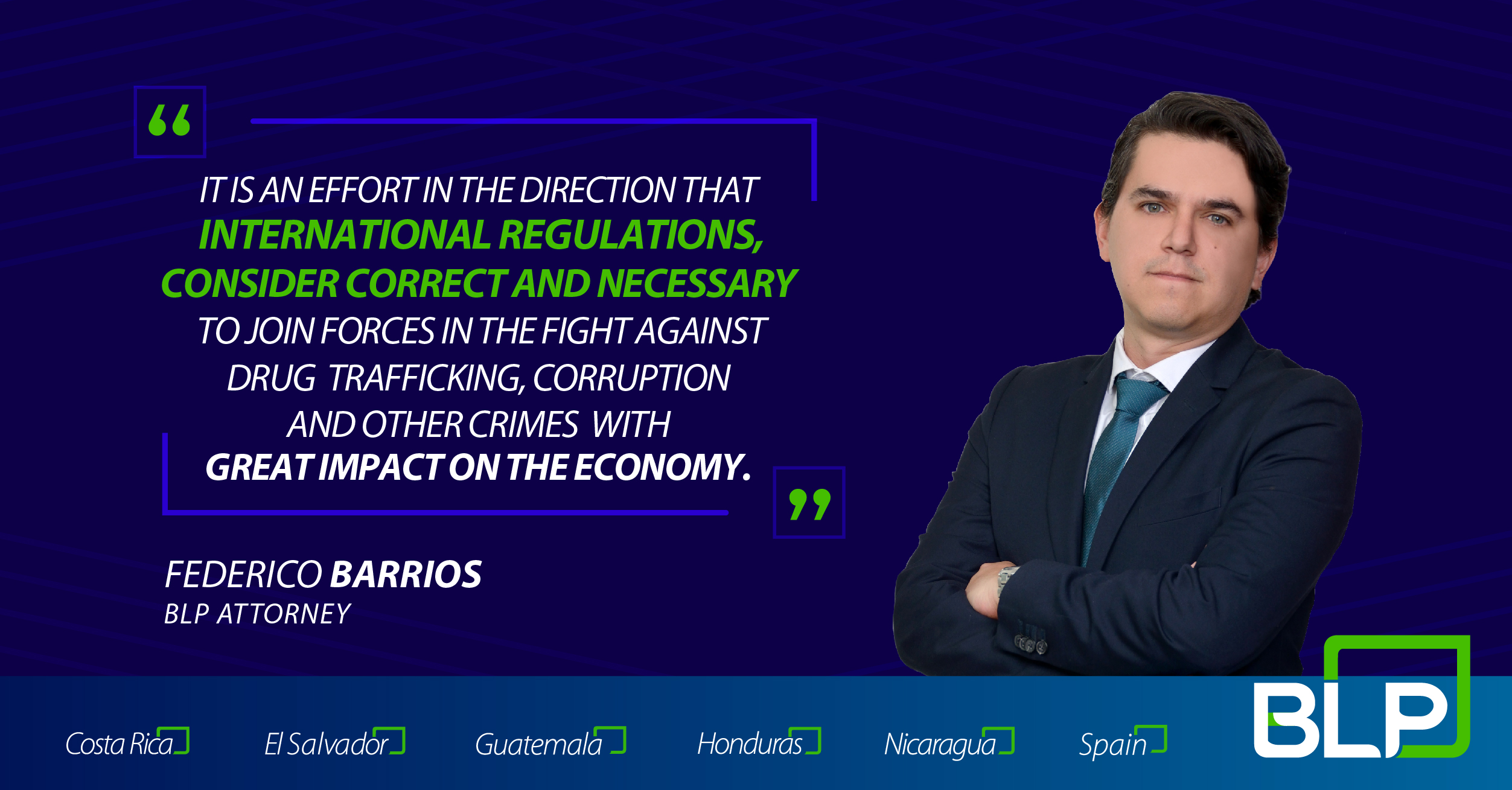On Friday, August 21, the National Assembly approved the Law of Reforms to the General Law of Registries and an article of the Commercial Code, creating the bases for a Registry of the Final Beneficiary of Commercial Companies.
What is a Final Beneficiary?
It is the natural person who owns or controls a legal person or structure and/or the natural person in whose name a transaction is carried out. The concept also includes the persons who exercise final effective control over a legal person or structure.
In Nicaragua, at least, regarding the records that obligated subjects in anti-money laundering matters (both financial and non-financial entities) must keep, the final beneficiary is the natural person who exercises control of the legal entity through ownership of 25% or more of its shareholding structure. A similar definition is presented in the regulation of lawyers and notaries.
Our legislation already had antecedents to the obligation to register this information: Article 13 of Law 977, Law Against Money Laundering, Terrorist Financing and Financing of Proliferation, establishes that legal entities registered in Nicaragua must keep adequate, accurate, and updated information on their final beneficiary and its ownership and control structure. This information must be kept and updated by each type of company.
What are the reforms?
1. The “Registry of Final Beneficiary of Commercial Companies” is established, which is described as a registry of an administrative nature and public law (but not as a public registry) to be governed under regulations soon to be issued.
Its functions are:
a. Register the information of the final beneficiary.
b. Protect user data.
c. Guarantee access to information by the owners of the data and the competent authorities.
2. Articles 36, 155, and 156 dealing with Acts and Contracts that must be registered are amended and the documentation required for the creation and administration of companies is increased.
To clarify, all these modifications are made within the Mercantile Registry, and the requirements or structure of the Final Beneficiary Registry have not yet been discussed.
These sections of the reform create the obligations to share information and documentation that proves who are the natural persons behind the shareholders, managers, or controllers of the mercantile companies, as well as the obligation to update these records in a defined time (30 or 60 days depending on whether the document was issued inside or outside the country).
Companies must provide documentation to report changes in their shareholders, as well as in the structures of any entity that is a shareholder of said company. Companies that are already registered must update their basic information and the final beneficiary according to the update cycles that the registry will provide.
Failure to comply with these regulations invokes the administrative sanction of blocking the registration of new commercial documents of that company, although now, the door seems open for the application of new measures that can be established in the regulations.
4. There are new requirements in the Registration as Merchant of legal persons. Now this document will require more detailed information on the physical address of the company, the name of the legal representative, and the shareholding and control structure of the company. It is not yet clear how the control structure should be described
5. Regarding the Commercial Code, Art. 121 is amended, including the obligation to update the information of the Final Beneficiary of commercial companies.
What do the reforms mean?
From a country compliance point of view, it is an effort in the direction that international regulations consider correct and necessary to join forces in the fight against drug trafficking, corruption, and other crimes with a great impact on the economy.
From a practical point of view, new burdens and obligations are certainly created for the Nicaraguan business community, leading to increased legal costs and usage of time to establish, maintain, and administer the mercantile companies.
For these types of records to have an effective and efficient execution necessitates the adoption and investment in technological tools that mechanize many of these processes.
Since this need for investment occurs at a critical economic time for both the administration and the private sector, these reforms could lead us to a cycle of manual reporting obligations, which means the waste of private resources, and to the creation of databases that are difficult to process, with the risk of making them, as well as all the effort, obsolete from their origin.
Although the reform creates the registry of the final beneficiary, the provisions that were modified are related to the commercial registry. Little or nothing is still known about how the new registry will be structured, its specific requirements, and how the sanctions for non-compliance will be applied.
Is this the end of the road? Are we already in compliance with the FATF?
The answer to both questions is No.
Although the approval and prompt publication in the Gazette, the Official Journal, signals the validity of the law, the applicability of the Registry should wait for its regulation to be issued. At the moment we have some uncertainty about whether the information requirements to register acts in the commercial registry will take effect immediately, or will they await the regulation of the final beneficiary registry.
The FATF, in its monitoring reports, includes its conclusions on the approved and existing legislation, but for complete compliance with the recommendations, a high score on the application and favorable results from the anti-laundering systems that are in force are necessary.
The approval of this reform marks a check in a box, but it is just the beginning of the journey to compliance.
*Source: Original article published in La Prensa de Nicaragua (only available in Spanish)



